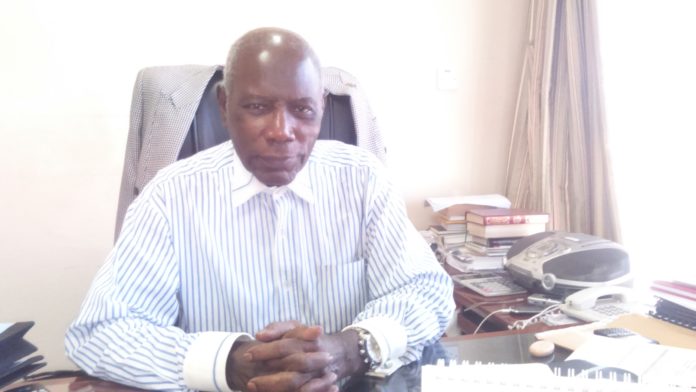Which lawyer is advising the IEC?
Correct reading of the law is part and parcel of electoral administration. Hence any electoral body must have a team of competent lawyers to assist it in giving a correct reading to the laws which it is established to administer and enforce.
Who is qualified or not qualified to stand for election must be determined according to law. The Independent Electoral Commission is charged with a heavy responsibility and must not violate section 26 paragraph (a) of the Constitution which states:
“Every citizen of The Gambia of full age and capacity shall have the right, without unreasonable restrictions to vote and stand for elections at genuine periodic elections for public office, which elections shall be by universal and equal suffrage and be held by secret ballot.”
It is the right of every Gambian who is qualified to stand for election and such a right should not be unreasonably denied. It is therefore important for legal advisers of the Commission not to make a mess of our electoral system by assisting the Commission to give proper reading to the laws governing electoral matters.
Let us take the issue of criminal offence as a basis of disqualification in elections. First and foremost, allow us to examine section 62 of the Constitution, the provision dealing with the Office of President. It reads:
“A person who, while holding public office in The Gambia has been found guilty of any criminal offence by any court or tribunal established by law shall not be qualified for election as President.”
This provision bars any person who whilst holding public office is charged, tried and found guilty of a criminal offence.
Let us look at section 91 of the Constitution, the provision dealing with the National Assembly. It reads:
“(1) No person is qualified for election as a member of the National Assembly if he or she – (c) is under sentence of death imposed on him or her by any court, or is serving, or within five years of his or her nomination for election completed serving, a sentence of imprisonment for a term exceeding six months imposed on him or her by a court or substituted by competent authority for some other sentence imposed on him or her by a court, and has not received a free pardon;
(d) has been found guilty of any abuse of office, corruption or any offence connected with public elections by a court;”
Hence it is abundantly clear that if a person is found guilty of an electoral offence such a person will be barred from standing as a candidate for National Assembly elections. However, if the conviction is due to any other offence, the person must either be sentenced to death or serving or has completed serving a sentence of imprisonment for a term exceeding six months and has not been pardoned. Anybody who is not serving or has completed serving a term of imprisonment for less than six months could not be deprived from standing as a candidate for National Assembly elections. Anybody who is also sentenced to a fine that has no link to electoral offences cannot be barred from standing in a National Assembly election.
In terms of disqualification of candidates for councillorship and mayoral/chairperson elections, sections 17 subsections (3)(b) and (6) of the Local Government Act applies. It states:
“17(3)(b) A person shall not qualify to be elected or nominated as a member of a Council if he or she has been sentenced to death or imprisonment for an offence involving fraud, dishonesty or violence or has been convicted of an offence relating to or connected with elections under any enactment in force in The Gambia at the time.”
“17(6) Notwithstanding paragraph (b) or (c) of subsection (3) of this section, a person shall qualify to be elected or nominated to a Council if ten years have elapsed since the end of the sentence or disqualification or if he or she has been pardoned.”
Hence the section separates the offence which leads to disqualification from being elected or nominated to stand election as a councillor. The first basis of disqualification is the sentencing of the person to death or imprisonment for fraud, dishonesty or violence. Whilst disqualification due to imprisonment is linked to a term exceeding six months for the National Assembly and the provision dealing with council elections imposes no term limitation but excludes imprisonment other than offences dealing with fraud, dishonesty and violence. However, conviction for electoral offences would automatically disqualify a person from standing for council elections for ten years after conviction.
Foroyaa calls on the IEC to seek proper legal advice even if it means utilising the services of ECOWAS and the AU to give proper reading to the Act in hearing the appeal of the APRC candidate in Basse. Precedents should be based on truth and justice, otherwise it would erode integrity.



















